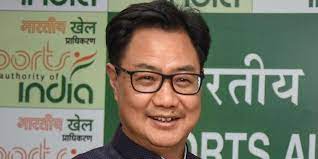Owning and recognising existence of a problem can be tantamount to the feeling of the need to resolve it , if not deemed hypothetically as having been half -done or resolved. The other version could be merely acknowledging that a problem existed was not sufficient and served little purpose if simultaneously it was not unambiguously spelt out as to how and when it could be solved . Why are court cases increasing day by day in the country despite lot of improvement on comparative basis in terms of the requisite infrastructure, is important to be known but equally it is more important to know as to why there is no breakthrough, even after several claims made to address it, in reducing the pendency of court cases. We must sincerely agree that the ”distance” between justice and common people is increasing day by day and not shortening. Just we can look at the figures of the cases of under trials, it speaks volumes about the prevailing system. There being more people in jails without trial than actual convicts is putting lot many questions on the system. Just one factor of pendency of cases or that of imparting justice can be gauged by the number and plight of under trials . It is not known how long they have to wait for a trial.
In this connection, Union Law Minister Kiran Rijiju recently has expressed concern over the speed at which the number of pending cases in courts is rising in the country , we feel, is quite genuine concern as this fact equally where an increase in filing of fresh cases too is observed again with concern but the question is how this problem of pendency showing signs of impregnability was proposed or planned to be addressed on consistent basis to have the growing numbers coming down steadily. Cases pending for more than 10 to 15 years even more definitely speak a lot about the existing system lending credence to justice being denied since the same being delayed as much. Not only is a change of conventional approach increasingly needed to tackle this problem but just by putting a bit of extra efforts which we, in common parlance, call some hard work or walking a mile extra would definitely result in showing extraordinary results. The question again is how can that be made possible since discussing a problem for academic purposes only and that too occasionally and at events merely meant no solution.
The time has come when some measure of critical appraisal should be made in respect of the entire gamut of how cases filed in courts could be disposed of as quickly as possible but within how much period , how quality of investigations done could be further improved, how sheer professionalism in prosecution proceedings could be employed, how related formalities preceding to and following filing of cases could be expedited , how various agencies besides police worked in tandem to enable and rather help courts to make it all smooth leading to speedy hearing and how the ”tradition” of court dates / presence / next listed dates were less frequent or minimised. Why cannot the courts remain open throughout the year and equally why courts should not be having a self appraising mechanism of measuring improvement in disposal of pending cases.
Why sufficient number of Judicial Officers are not provided in the courts and, therefore, courts not made to suffer on account of shortage of judges. Vacancies of Judicial Officers at subordinate courts and judges at High Courts and even at Supreme Court must be filled without unwarranted delays. Why cannot the Central and State/ UT Governments cause minimum grounds or reasons for litigations against them and equally minimise initiating of cases against others which could become possible only on account of taking timely and pro-people /employee decisions without compromising on principles of probity and transparency? Why appointment of efficient court managers is not given proper attention? Why High Courts do not hold competitive examinations regularly for recruitment of judges ? The need of constant training for judicial personnel too is an important aspect which must be looked into. Why should there be infrastructural constraints like proper court rooms, ambiance and court buildings and related basic minimum facilities for court staff and litigants? These are just illustrative points not exhaustive ones.
Agreed, the Union Minister proposed certain measures and innovative steps which if taken could bring about some changes but would those be given a shape of practicability like during his interaction with and following assuring the judges of High Courts and Supreme Court that the Union Ministry was ”ready” to extend all support to them but as he put it, “should be ensured that timely justice is delivered to people”. Common people ,the litigants and those looking at judiciary and the system for getting justice are not bothered whether by introducing e-courts, fast track courts, adding into the number of courts, promoting languages other than English in courts and what not or by employing which methods, they want delivery of justice within a reasonable time. Let that time factor be decided.
Trending Now
E-Paper


